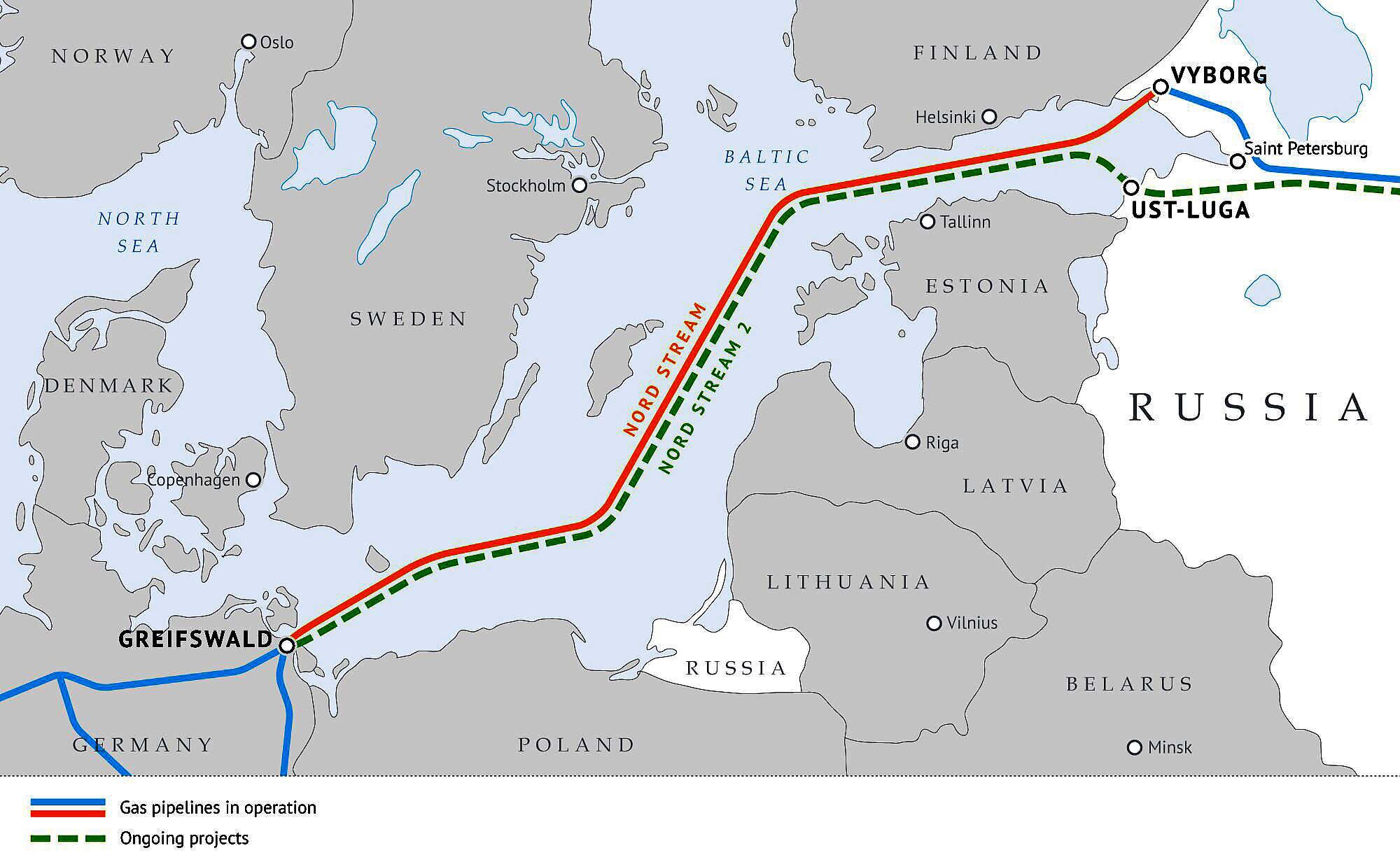International Relations
Nord Stream Pipeline
- 31 Jan 2022
- 5 min read
For Prelims: Baltic Sea and its surrounding countries.
For Mains: Russia-Ukraine Crisis, Nord Stream Pipeline.
Why in News
Recently, the US has said it will stop the Nord Stream if Russia attacks Ukraine.
- However, European countries, led by Germany, seemed reluctant initially to impose sanctions on the Nord Stream due to its importance though it has now said sanctions are not off the table.
- Nord Stream, the longest subsea pipeline, is an export gas pipeline which runs under the Baltic Sea carrying gas from Russia to Europe.
Key Points
- About:
- Nord Stream consists of two pipelines, which have two lines each.
- Nord Stream 1 was completed in 2011 and runs from Vyborg in Leningrad (Russia) to Lubmin near Greifswald, Germany.
- Nord Stream 2 which runs from Ust-Luga in Leningrad to Lubmin was completed in September 2021 and has the capacity to handle 55 billion cubic meters of gas per year once it becomes operational.
- The twin pipelines together can transport a combined total of 110 billion cubic metres (bcm) of gas a year to Europe for at least 50 years.
- The Nord Stream crosses the Exclusive Economic Zones (EEZs) of several countries including Russia, Finland, Sweden, Denmark and Germany, and the territorial waters of Russia, Denmark, and Germany.
- In Germany, the pipeline connects to the OPAL (Baltic Sea Pipeline) and NEL (North European Pipeline) which further connects to the European grid.
- Nord Stream consists of two pipelines, which have two lines each.
- Objections to the Pipeline:
- By Germany:
- According to environmentalists, it does not fit in with German efforts to cut dependence on fossil fuels and fight climate change.
- Nord Stream 2 has not yet started operating because Germany says it does not comply with German law and has suspended its approval. The project is also awaiting approval from the European Commission.
- Strategic Objection:
- The strategic objection, particularly from the U, is that it will make Europe too dependent on Russia, increasing Russia’s influence in Europe.
- Moreover, there is concern that Russia could use it as a geopolitical weapon.
- Ukraine has objected because it will lose around USD 2 billion in transit fees once the pipeline becomes operational.
- Moreover, so long as Russian gas transits through Ukraine, Russia is unlikely to intervene and cause instability in Ukraine and Europe will stay invested in its security.
- Countries like Poland and Belarus also stand to lose transit fees and hence oppose the pipeline as it will bypass existing pipelines running through them.
- The strategic objection, particularly from the U, is that it will make Europe too dependent on Russia, increasing Russia’s influence in Europe.
- By Germany:
- Importance for Europe and Russia:
- Europe:
- Europe requires more than 100 billion cubic metres (bcm) of natural gas each year and around 40% of its gas comes from Russia.
- Over the last few years, Europe has become more dependent on gas imports because of a decrease in domestic gas production. Reducing dependence on Russian gas is difficult as there are no easy replacements.
- Many European businesses have large investments in Nord Stream 2 and there is pressure on governments from these businesses. Finally, a reduction in gas from Russia would increase already high gas prices and that would not be popular domestically.
- Russia:
- As for Russia, which has the largest natural gas reserves in the world, around 40% of its budget comes from sales of gas and oil.
- Nord Stream 2 is important because it eliminates the risks related with sending gas through transit countries, cuts operating costs by doing away with transit fees and gives direct access to its most important European customer, Germany.
- It increases Europe’s dependence on Russia while giving it a reliable customer.
- Europe:





